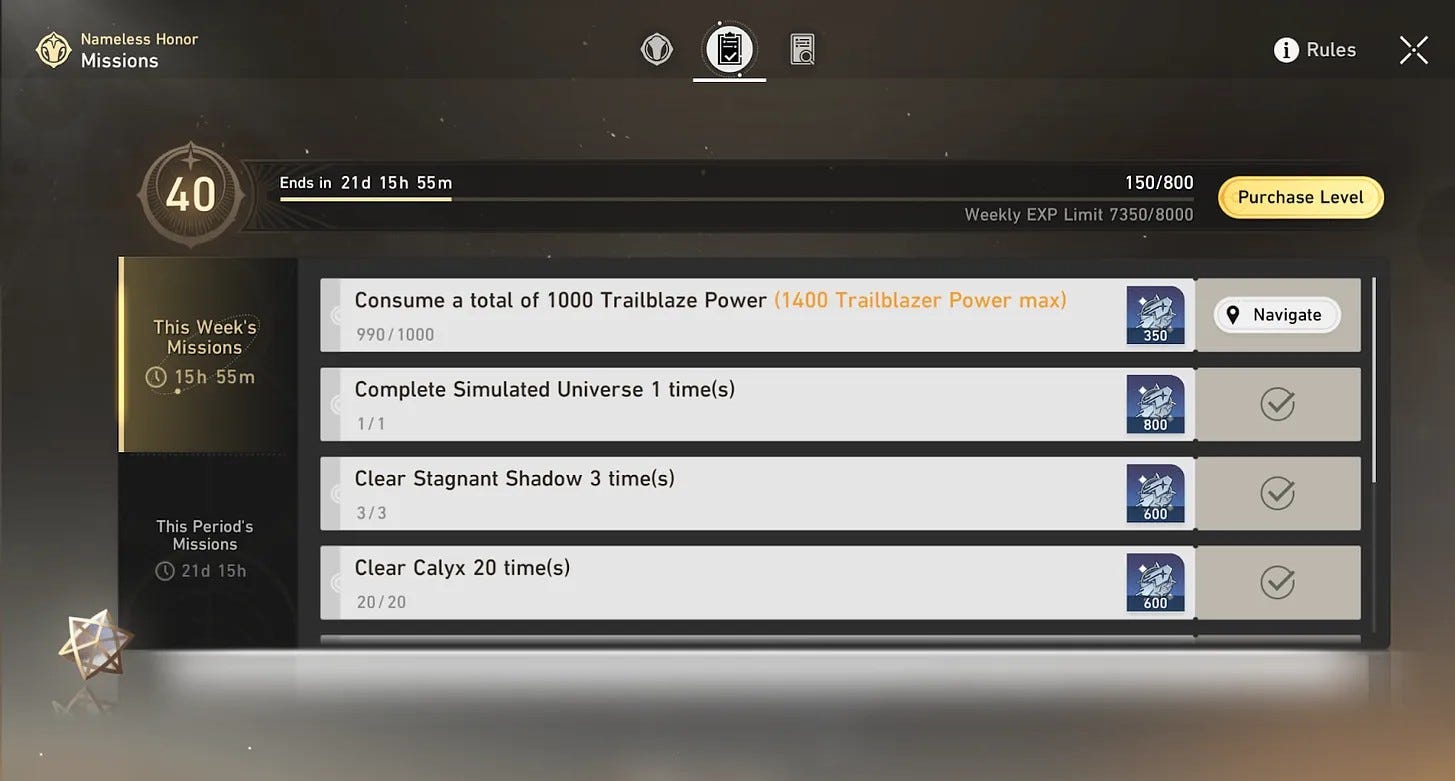Houston, We Gacha Problem!
Newly proposed regulations in China could impact monetization practices in a big way.
Written by Tpage (@tpagetenor)
In the closing weeks of 2023, the Chinese government proposed a set of new regulations to curb predatory monetization practices in video games. While under review and currently open for public comment, the proposal has caused some alarm among gaming giants. On the day of the announcement, Chinese conglomerates Tencent and NetEase saw their stock value drop by 16% and 25%, respectively.
Here are the broad strokes of the proposed regulations:
Daily Log-In rewards & first-time purchase bonuses would be forbidden
Any in-game rewards attained through Lootbox or Gacha mechanics must also be directly purchasable at a comparable rate
Companies must adopt “reasonable” rates for Gacha/Lootbox rewards
Pop-up warnings for excessive time/money spent in-game
This demonstration of intent from the Chinese government is the latest in a multi-year saga, bringing in-game monetization under more intense scrutiny from regulators. In 2019, a bipartisan group of U.S. Representatives proposed a bill aiming to regulate loot boxes and other pay-to-win microtransactions in games specifically targeted at minors. This would have included popular titles such as Fortnite and Roblox, along with almost every Triple-A sports game. However, the progress of this bill has been stalled indefinitely.
Belgium and the Netherlands both imposed major restrictions on Lootboxes, determining that they met the criteria for gambling. Although a higher court overturned the Netherlands’ decision in March of 2022, Belgium continues to host a unique version of Electronic Art’s popular FIFA series with lootboxes removed. Other European countries have produced studies comparing the effects and usage of lootboxes to traditional gambling, though no further legislation has been enacted.
Looking Forward
While governments are typically slow to adapt to digital innovations, the growing awareness in the EU and now China are pointing toward an eventual shift in how in-game monetization is regulated. The lack of real monetary value of in-game rewards has long been used as the shield to protect lootboxes and gacha mechanics from falling under traditional gambling definitions.
Yet multiple psychological studies have shown that, in practice, these systems are just as addicting as playing a physical slot machine in a casino. The ease of spending in games like FIFA or Genshin Impact combined with digital obfuscation of the total amount spent and the accessibility to minors and those with problem gambling tendencies should make regulating these mechanics a no-brainer.
Ultimately, these regulations have yet to take effect, so we will have to continue monitoring their progress. It will be fascinating to see what actions game publishers take in response to the proposal. Honkai: Star Rail, the popular turn-based RPG from Hoyoverse, removed daily log-in quests from the battle pass just five days after the announcement, though it is unlikely this change was a direct response.

Ideally, this type of legislation will begin to take on a more unified form around the world, forcing game publishers to be more transparent with their player bases. Microtransactions are here to stay, but moderating the elements linked to problem gambling would be healthy for the industry as a whole.








Great write-up. Sensible regulation is absolutely needed.
If every game removed daily missions, I would be so happy. So many of my favorite games are live service, and I just can't keep up with more than one battle pass at a time.